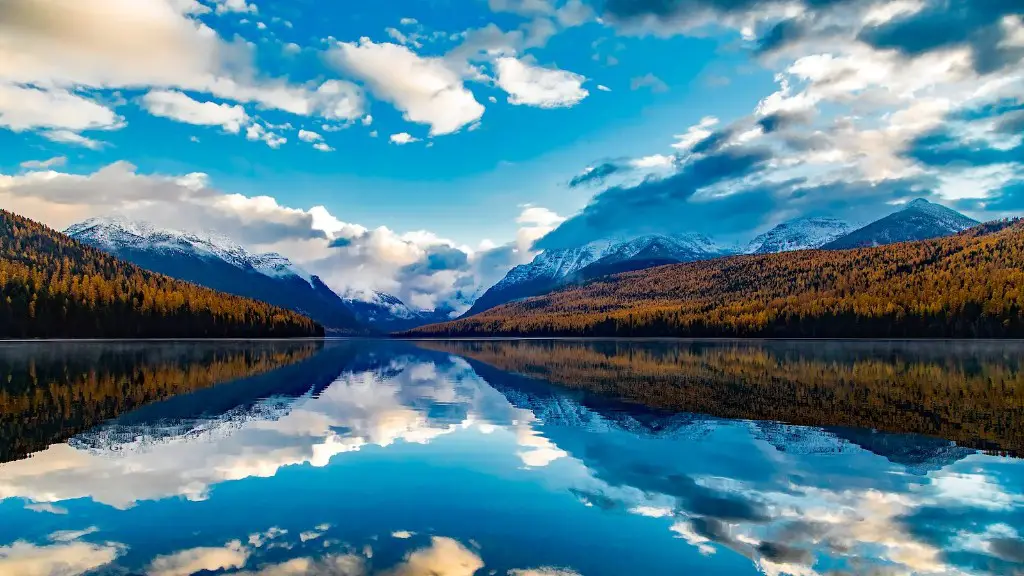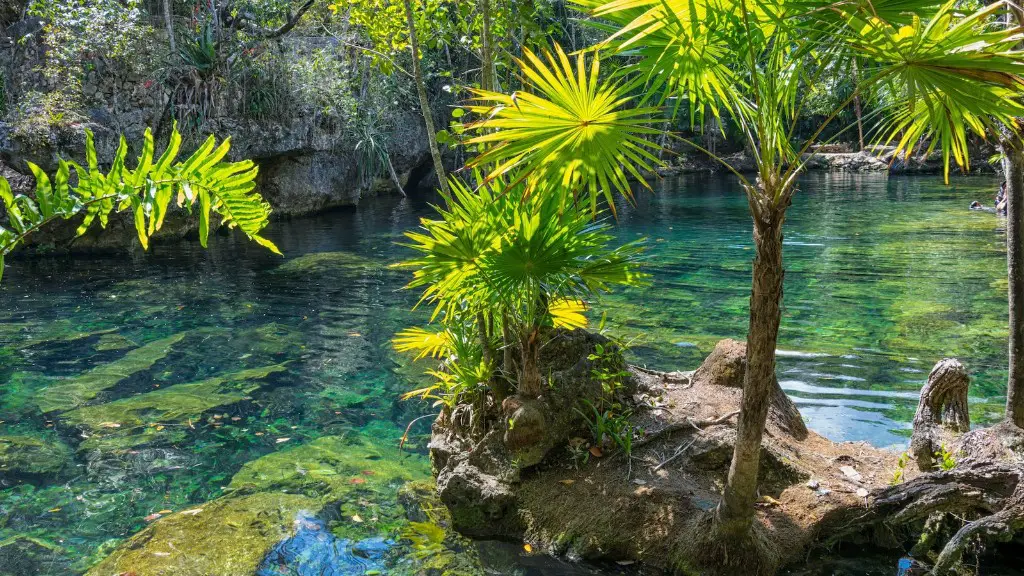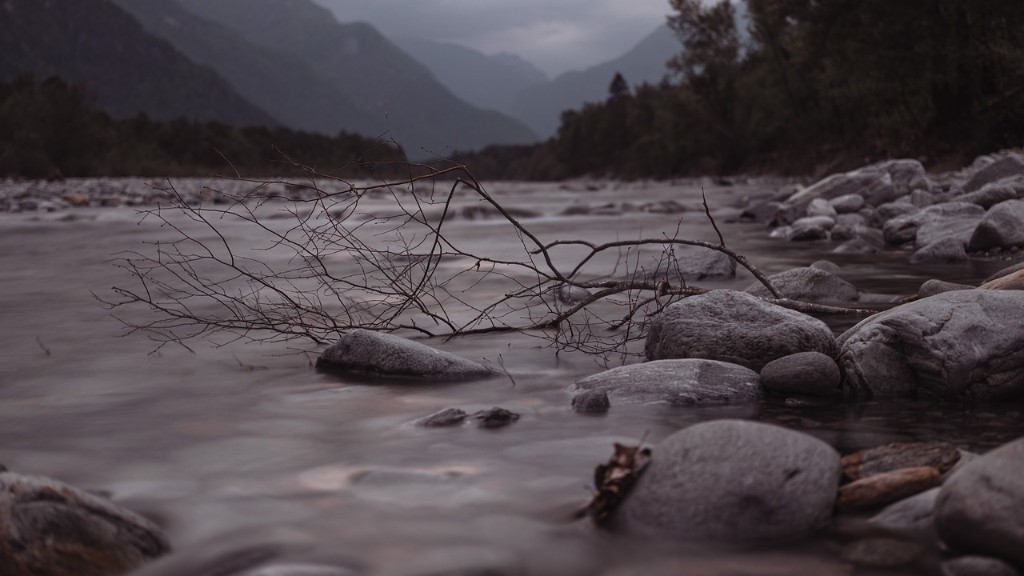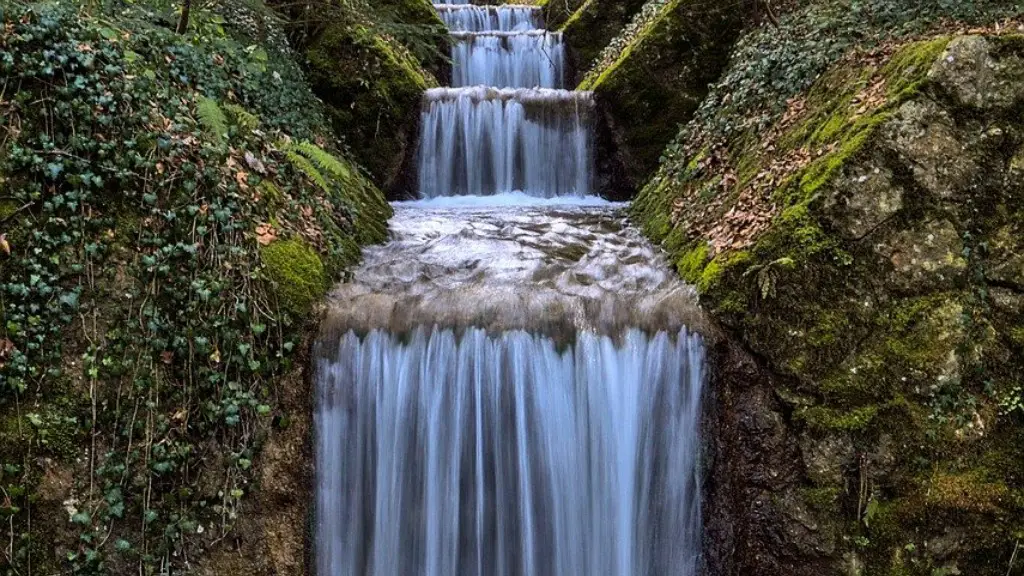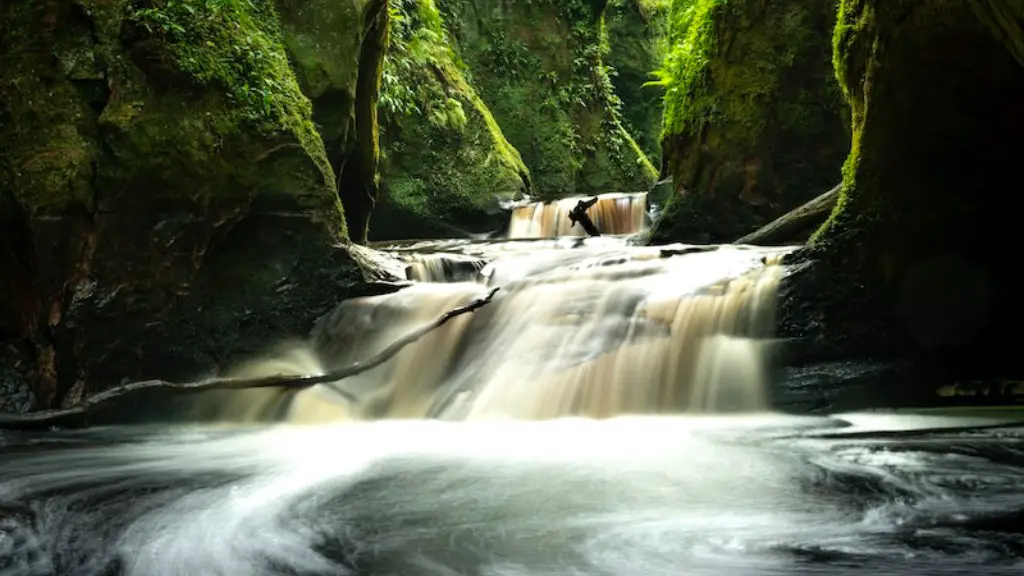What Does the Mississippi River Carry?
The Mississippi River is a dynamic transport hub, with an astonishing variety of goods transported from one end of the river to the other. In its entirety, the river stretches over 2,300 miles, and many barges, ships, and ferries navigate its waters in search of profits. One of the most common products shipped on the Mississippi River are grains, minerals and building materials; the most profitable merchandise shipped is petroleum, followed by coal. In addition to these, industrial plants also ship manufactured goods, and agricultural products such as soybeans and wheat as well.
An astonishing amount of goods, both light and heavy, is transported on barges and large ships on the Mississippi River. The most common items transported are petroleum and coal, followed by minerals. These products are often shipped in barrel or bulk, and account for a large portion of the barges and ships that navigate the Mississippi’s waters. In addition to these two types of goods, industrial plants often ship manufactured goods such as steel, aluminum, cement and gypsum. The Mississippi River is also used by agricultural businesses to transport agricultural products such as soybeans, wheat and corn.
The Mississippi River is an important part of the economy of the United States and the world. Its ability to carry large amounts of goods and materials, as well as its strategic location, allow businesses to transport their products to various destinations, both within the US and abroad. This is especially true for the oil and gas industry, which relies heavily on the Mississippi River to transport its products. In fact, the river accounts for nearly 10% of all US diesel fuel transportation.
Despite its importance, the Mississippi River can be a dangerous place. There have been numerous accidents and tragedies on the river, as a result of poor navigation and ignorance of the river’s channels and islands. Thus, it is imperative to stay vigilant and properly informed of the river’s behavior and hazards when shipping goods along its waters. Additionally, the river has several regulations concerning the size, design and functioning of barges and ships, and those regulations must be strictly followed in order to ensure the safety of goods and passengers.
The goods transported on the Mississippi River are of great commercial and economic importance. The petroleum and coal industry relies heavily on the services of the river and would not be able to function without it. Other businesses also rely on it, and its importance to the country’s economy is undeniable. Moreover, the river serves as a vital link between the Midwest and the Gulf Coast, as well as with Europe and Asia.
Mining Operations
Mining operations are a frequent occurrence along the Mississippi River. Companies that specialize in industrial minerals and rocks such as limestone, sand and salt will often use barges to transport their goods. These minerals and rocks can have both commercial and residential use, making them essential resources for construction and manufacturing. In addition to this, the river is also home to several companies that specialize in dredging operations. These companies use barges and ships to dredge the river’s depths and remove sand, mud and other debris. This is an important process that helps keep the river clean and navigable.
Moreover, the river is also home to several recreational activities such as fishing and sightseeing. Fishermen often use the river to catch carp, catfish, and other kinds of fish. There are also companies that lead sightseeing trips and fishing expeditions along the Mississippi, giving tourists and locals a chance to explore the river and its wildlife. In addition to this, the river is also home to several iconic landmarks, such as the Baton Rouge Padlocks and the Clarksdale Caboose.
The Mississippi River is also home to a diverse range of wildlife. Many species of birds, mammals and reptiles call the river their home. For example, bald eagles, ospreys, pelicans and swans can be seen flying around the river, while reptiles such as king snakes, cottonmouths, and mud snakes can be found near the river’s shores. The river also provides a habitat for beavers, muskrats, turtles and even alligators. Furthermore, the river can be seen as a refuge for manatees and other aquatic mammals.
In addition to its diverse fauna, the river also provides a habitat for numerous species of plants. Many species of trees, shrubs and aquatic plants flourish along the river’s banks. Aquatic plants such as duckweed and water lilies can be seen growing on the river’s surface. These plants serve as a food source for numerous species of fish and other animals, creating a unique and complex river ecosystem.
Environmental Issues
Unfortunately, the Mississippi River is not immune to the effects of pollution, and its waters have been contaminated by industrial and agricultural waste. The river’s ecological health has been degraded due to the release of toxic chemicals and other pollutants, which has caused environmental damage and health issues for local communities. In addition to this, the river is also used as a dumping ground for trash, resulting in the accumulation of solid waste.
The river is also affected by water scarcity, due to changing climates and rising sea levels. This has had drastic consequences for the plants and animals that live in and around the river, and it has led to an increase in the number of threats posed to the river’s delicate ecosystem. In order to address these problems and restore the river’s health, the US government has established a variety of initiatives, such as the National Mississippi River Restoration Plan.
The health of the Mississippi River is interwoven with communities’ well-being. As a result, a variety of organizations have been formed in order to protect the river and its inhabitants. For example, the Mississippi River Fund is a non-profit organization that works to protect the river and its environment. Additionally, the Coalition to Restore Coastal Louisiana is a non-profit organization that works to restore and protect the wetlands and marshlands of the Louisiana coast. These organizations often work in conjunction with the US government in order to achieve their goals.
Navigating the Mississippi River is an incredibly complex undertaking. The river is subject to numerous hazards such as rapidly changing water levels and currents, as well as sand bars and shallows. Thus, it is essential to be properly informed of the river’s behavior and hazards before shipping goods on its waters. Most vessels navigating the river are required to be equipped with radio-navigation systems and a competent navigator.
In addition to this, the US Coast Guard is also responsible for the safe navigation of the Mississippi River. The Coast Guard actively patrols and regulates the river’s area, inspecting vessels and enforcing safety regulations. This is a critical task, as the river is prone to accidents and tragedies due to poor navigation methods, inadequate safety equipment, and ignorance of the river’s hazards. As such, the Coast Guard plays a vital role in ensuring the safety of people and goods on the river.
The Mississippi River carries a diverse range of goods along its length. These include petroleum, coal, minerals, manufactured goods, and agricultural products. These goods are of great importance to the economic health of the US, and without the Mississippi, the country would not be able to ship these goods in such large quantities. Additionally, the river is home to numerous recreational activities, wildlife and plants, and its worth to the US is undeniable.
Ecosystem
The Mississippi River plays a crucial role in the health of its own ecosystem. It serves as home to numerous species of plants and animals, as well as a habitat for migratory birds and aquatic mammals. Additionally, the river is also an important source of food, water and shelter for many species, which allows them to thrive in their natural environment.
The Mississippi River’s ecosystem is also affected by various human activities, such as the release of pollutants and solid waste. As a result, the river’s ecological health is facing numerous threats. The US government and various non-profit organizations are working hard to restore the river’s health and preserve its biodiversity. In addition to this, the Mississippi River’s importance to the US and the world is undeniable and its impact on the national economy is undeniable.
The Mississippi River is an integral part of the US and the world, and it is of great importance to the country’s economy. Its ability to transport large amounts of goods, minerals and materials makes it an invaluable asset, and its importance to the nation’s economy is undeniable. Additionally, the river serves as an important habitat for numerous species of plants and animals, and its worth to the nation and the world is immeasurable.
Economic Impact
The economic impact of the Mississippi River on the US is unmistakable. The river serves as a vital transportation hub, and its ability to transport goods quickly allows businesses to increase their profits and productivity. In addition to this, the Mississippi River serves as a source of employment for hundreds of people, and the goods transported on its waters are of great importance to the country’s economy.
The Mississippi River is also a vital part of the US’ and the world’s energy infrastructure. Petroleum and coal are among the most profitable goods shipped on the river, and these products are essential for many industries and businesses. Furthermore, the river is also used to transport other industrial goods such as steel and aluminum, which are essential for the growth and development of the country.
In addition to goods and materials, the Mississippi River also carries people, goods and money. Tourists, businessmen, farmers and other individuals travel along the river in search of opportunities, and goods, money and services are often exchanged in the cities and towns that line its banks. The river is also a key source of entertainment and recreation, allowing people to explore its waters and enjoy its natural beauty.
The Mississippi River is an essential part of the US economy. Its ability to transport goods and materials quickly, as well its importance to industries and businesses, makes it an invaluable asset. The river is also an important source of employment, and its importance to the US cannot be overstated.
